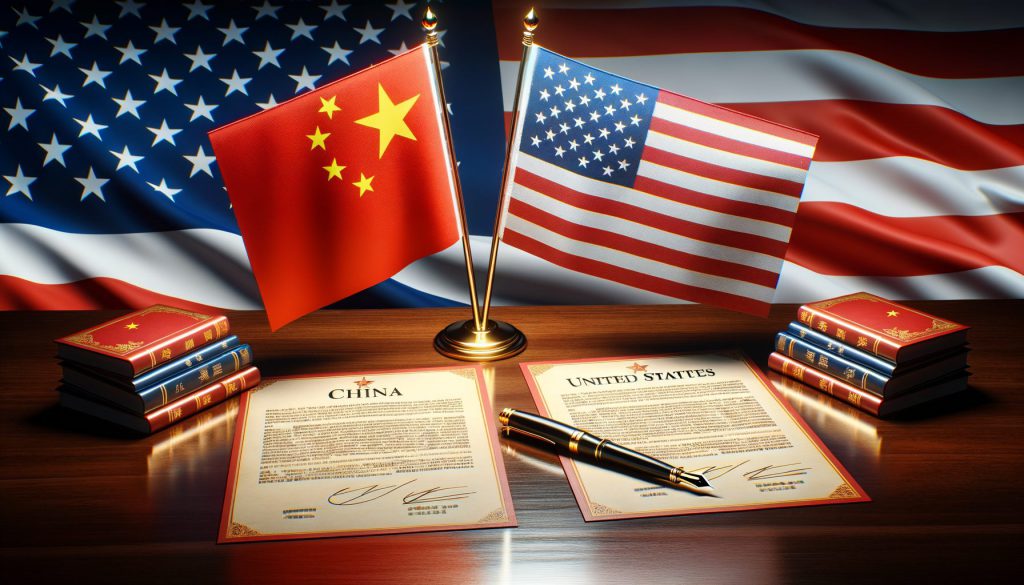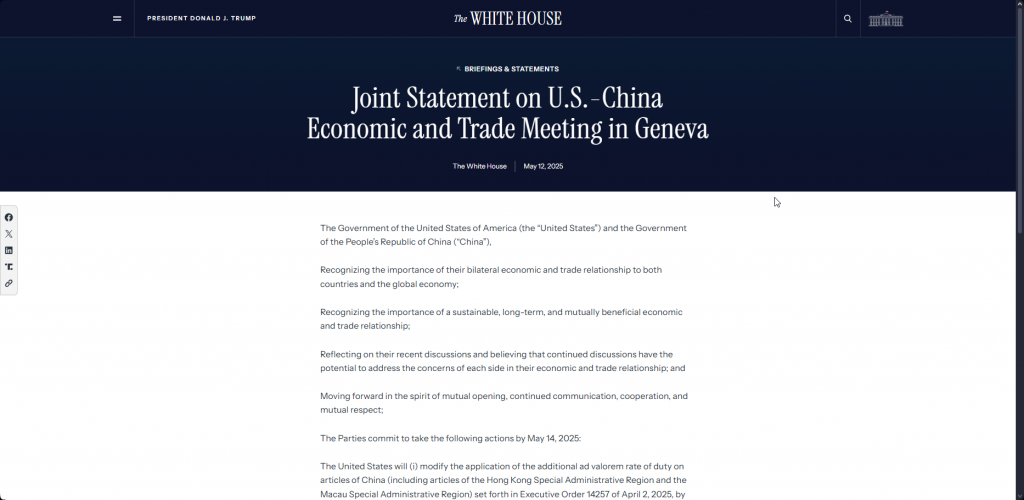US Slashes China Tariffs from 145% to 30%—Temporary Relief or Political Theater?
Washington drops the hammer—then catches it mid-air. A 90-day tariff cut from 145% to 30% on Chinese goods hits the wires, sparking instant debate: economic stimulus or election-year pantomime?
Markets react with cautious optimism—while hedge funds quietly reposition bets on the next policy U-turn. Because in global trade wars, the only certainty is volatility.
Bonus jab: Wall Street analysts already pricing in the ’90-day extension’ narrative—because nothing fuels markets like kicking cans down the road.

 United States cuts tariffs on Chinese goods from 145% to 30% for 90 days.
United States cuts tariffs on Chinese goods from 145% to 30% for 90 days.China lowers tariffs on US from 125% to 10% for 90 days. pic.twitter.com/FaRJfZA1hu — Watcher.Guru (@WatcherGuru) May 12, 2025
Trade War Relief: How The Geneva Economic Talks Will Impact Markets And Ease Regulatory Uncertainty

The recent breakthrough in US-China trade relations comes after two full days of high-level negotiations in Switzerland. This US China tariff reduction actually represents the first major de-escalation since President TRUMP imposed those sweeping tariffs earlier this year, and many experts believe it could help stabilize the global economy.
Key Elements of the Geneva Agreement
According to the joint statement that was released by the WHITE House, both nations have committed to take specific actions by May 14, 2025. The US China tariff reduction includes the United States suspending 24 percentage points of its tariff rate for 90 days, while still maintaining a 10% baseline tariff on Chinese goods.

Treasury Secretary Scott Bessent stated:
Chinese Vice Premier He Lifeng described the discussions as:
Market Impact of Tariff Reductions

The sharp reduction of US-China tariffs is likely to greatly soothe volatile markets that have had to cope with uncertainty for the past months. Economic projection suggested that US imports WOULD be reduced at least by 20% yearly while Chinese imports reduced significantly to 75 – 80% by the second half of the 2025.
US Trade Representative Jamieson Greer highlighted:
Future of US-China Trade Relations

The agreement also establishes a mechanism for continued discussions, with representatives from both sides meeting alternately in China, the United States, or perhaps even a third country. This kind of structured approach aims to ease the regulatory uncertainty that has plagued businesses for months now.
Previously, Secretary Bessent had noted:
President Trump described the talks as negotiating:
Always the United States tries to fix its large trade disparity with the China, which amounts to about $295 billion at present. At the same time, China has repeatedly called for lower tariffs, even playing field for international negotiations, and clearer purposes when it comes to trade objectives.
Having this temporary tariff reduction, currently, observers talk of a cooling off period which might lead to long term and stabilizing solutions between both sides to their persistent trade disagreements.

